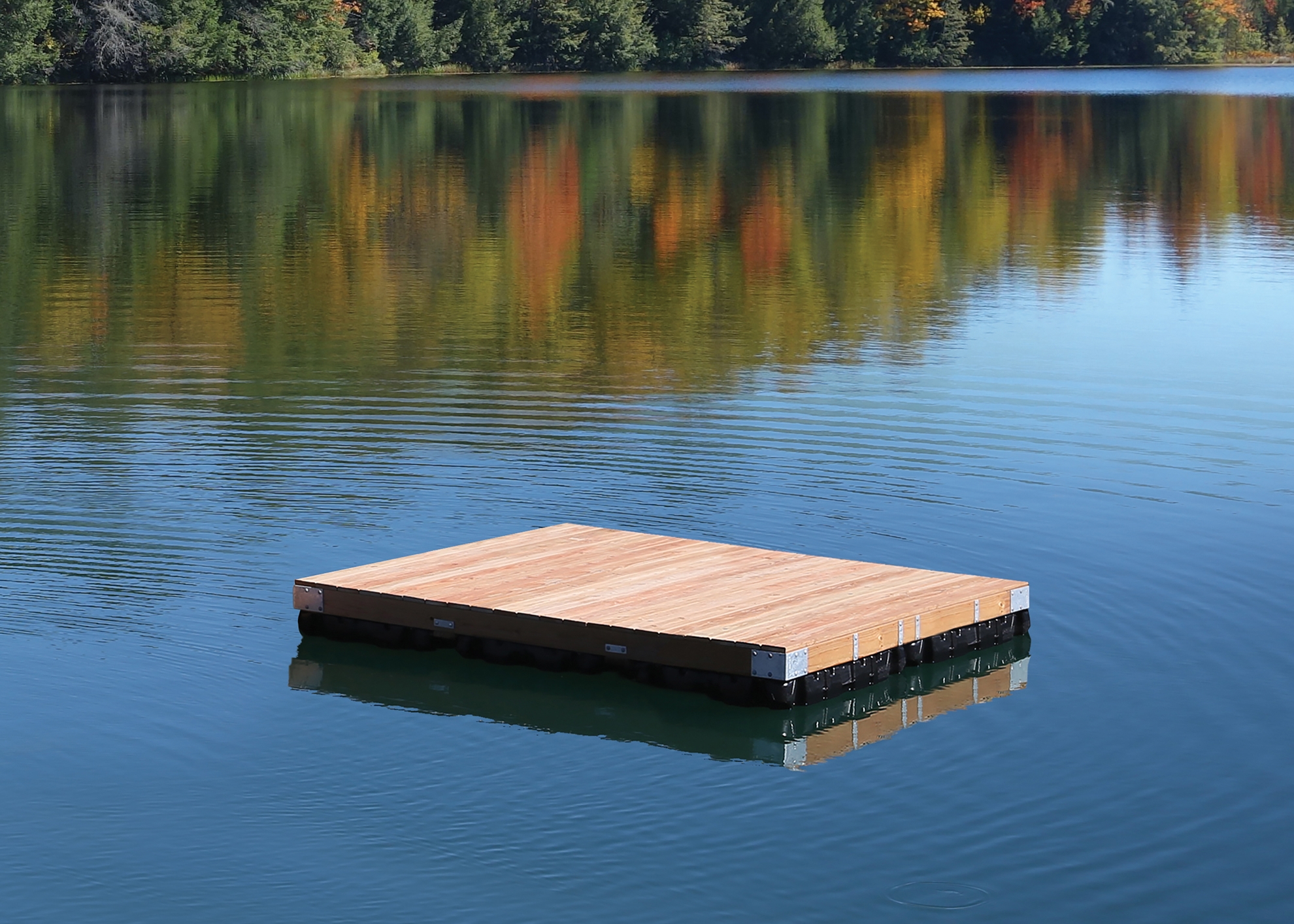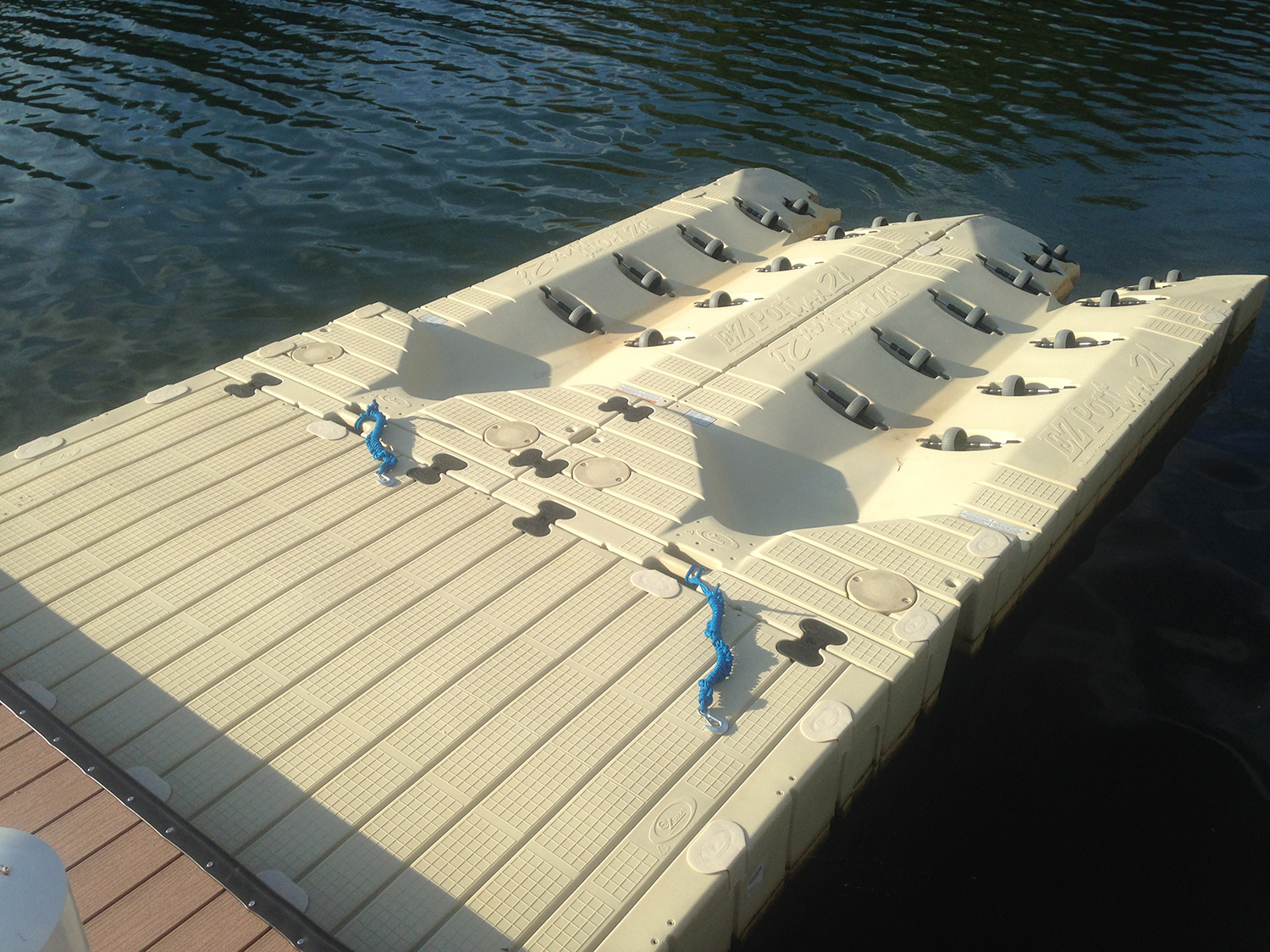Why Floating Docks Are the Perfect Solution for Your Waterfront Demands
Floating docks present a compelling option for waterside needs, especially due to their adaptability to changing water degrees and their durable, modular design. These structures not only improve functionality for both recreational and commercial objectives yet also offer customization alternatives tailored to details needs. Their environmentally friendly materials add to sustainability efforts. As we explore the multifaceted benefits and applications of floating docks, it ends up being apparent why they stand out in the realm of waterfront facilities-- particularly when taking into consideration the long-lasting advantages they offer different stakeholders.
Key Benefits of Floating Docks
The adaptability of floating docks deals various benefits for beachfront applications, making them an increasingly preferred choice among marina operators and property programmers. Among the main benefits is their adaptability to changing water levels, which permits them to remain practical in various settings, including lakes, rivers, and coastal locations. Unlike standard fixed docks, floating docks can drop and increase with the tides and seasonal adjustments, ensuring consistent accessibility.
Additionally, floating docks are usually simpler and more economical to preserve and mount. Their modular style assists in fast assembly, decreasing labor prices and building and construction time. Additionally, the materials used in floating dock building and construction are typically resistant to rust, making certain longevity with marginal maintenance.
Safety is an additional crucial advantage; the resilient nature of these docks minimizes the danger of mishaps throughout boarding and getting off, making them especially appealing for family-oriented facilities. Their environmental effect is lower than that of fixed structures, as they do not disrupt aquatic ecosystems. Collectively, these advantages setting floating docks as a premium service for a range of beachfront demands, lining up with both operational effectiveness and environmental considerations.
Perfect Applications for Different Tasks
Versatility is a hallmark of floating docks, making them suitable for a wide variety of activities across different beachfront settings. These flexible frameworks can function as perfect systems for recreational tasks such as boating, fishing, and swimming. Their buoyant nature enables for easy access to watercraft, making it possible for smooth embarkation and disembarkation, while also offering a stable location for anglers to cast their lines.
In commercial settings, floating docks help with the loading and dumping of goods, fitting both huge and tiny vessels. They are particularly advantageous in locations with ever-changing water degrees, guaranteeing that procedures continue to be uninterrupted. In addition, floating docks can be made use of for beachfront eating and home entertainment, supplying a scenic and special experience for clients.
Environmental applications are likewise notable; floating docks can work as observation systems for wildlife viewing or as docking stations for study vessels involved in ecological researches. As marina growths come to be a lot more prevalent, these docks offer a useful service for raising ability without considerable land changes. Ultimately, the convenience of floating docks makes them a preferred choice for any individual seeking functional and reliable waterside options.
Layout and Personalization Choices
Floating docks not only satisfy varied activities however also supply a variety of style and personalization choices that improve their functionality and aesthetic charm. These flexible structures can be tailored to fit certain beachfront needs, whether for residential, business, or leisure functions.
One key aspect of customization is the selection of products. Choices range from high-density polyethylene to aluminum, each giving special advantages in regards to resilience and upkeep. In addition, the arrangement of the dock can be adapted to suit various water levels and environmental problems, making certain security and safety.
Layout features can click over here consist of incorporated seating, barriers, and lighting, which not only improve use yet likewise improve the visual facet of the dock. Customized coatings and shades allow proprietors to match the dock with existing structures or individual choices, developing a natural try to find the waterside.
Furthermore, floating docks can be created with modular areas, allowing simple expansion or reconfiguration as demands change. This adaptability is particularly beneficial for growing families or progressing business enterprises. In general, the considerable design and customization options available make floating docks a very versatile service for any kind of waterside setting.
Setup and Upkeep Considerations
Normally, effective setup and upkeep of floating docks need careful preparation and attention to information. Before starting setup, it is necessary to examine the certain site problems, including water depth, wave action, and local guidelines. This initial evaluation educates the choice of products and layout, ensuring the dock will stand up to ecological anxieties.

Upkeep is similarly vital to extend the life-span of the dock. Regular inspections ought to be carried out to identify wear and tear, specifically on flotation devices, adapters, and decking. Cleaning the dock regularly aids prevent the build-up of algae and debris, which can jeopardize surface area honesty and appearances.
Furthermore, seasonal prep work, such as removing accessories and securing the dock throughout severe weather, can avoid damages. By prioritizing appropriate installment and regular upkeep, owners can ensure their floating dock remains a dependable and practical waterfront solution for many years ahead.

Ecological Impact and Sustainability
The ecological impact of floating docks is an essential factor to consider for waterfront tasks, as these find out structures communicate straight with aquatic environments. floating dock builder. Unlike traditional set docks, floating docks reduce disruption to the substrate, permitting for all-natural sediment movement and lowering disintegration. Their design enables water flow beneath, promoting healthy marine environments and supporting regional wild animals
Numerous floating docks are constructed from lasting products, such as environmentally friendly composites and recycled plastics, which decrease the carbon footprint connected with manufacturing. Contemporary designs incorporate attributes that enhance ecological sustainability, such as permeable surface areas that help with water filtering and reduce pollution.
Floating docks also give an excellent system for habitat remediation by supporting the growth of water plants and offering sanctuary for fish and various other marine microorganisms. By including features like fish environments and submerged growings, floating docks can improve biodiversity in the area.
In addition, these structures can be designed to accommodate solar panels, supplying renewable energy choices that better decrease their ecological influence (floating dock services). In general, floating docks represent a sustainable option that balances human use watersides with the preservation of important ecological communities
Verdict
Finally, floating docks existing a extremely adaptable and sustainable remedy for varied waterside requirements. Their modular style, combined with using durable, corrosion-resistant materials, guarantees longevity and ease of upkeep. The convenience of floating docks fits different applications, ranging from recreational activities to industrial operations while lessening ecological effect. wikipedia reference Eventually, the customizable features and capacity for expansion more strengthen floating docks as an optimal option for any type of waterfront project.
Floating docks existing a compelling remedy for waterside needs, specifically due to their adaptability to rising and fall water levels and their robust, modular style. Unlike conventional set docks, floating docks can rise and drop with the tides and seasonal adjustments, guaranteeing regular availability.
Collectively, these benefits placement floating docks as a remarkable solution for a variety of beachfront needs, straightening with both functional performance and ecological factors to consider.
In general, the considerable design and personalization alternatives available make floating docks an extremely adaptable option for any waterside setup.
Unlike conventional set docks, floating docks decrease interruption to the substratum, allowing for natural debris movement and minimizing disintegration.